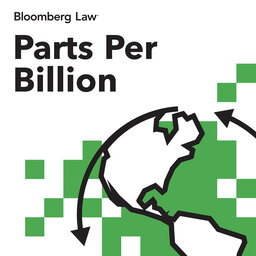Companies like Google, Amazon, Microsoft, and Meta are now some of the country's largest consumers of electric power. And as Bloomberg Law's Daniel Moore reports, they're starting to wield their strong purchasing power.
Big Tech companies are pushing the energy industry to bring more renewable power projects online, Moore says, and they're also hiring energy lobbyists to achieve these goals in Washington.
Moore joins our environmental policy podcast, Parts Per Billion, to talk about where the tech industry wants the country's electric grid to go and what that means for both utilities and ratepayers.
Do you have feedback on this episode of Parts Per Billion? Give us a call and leave a voicemail at 703-341-3690.
In 1 playlist(s)
Parts Per Billion
Parts Per Billion is Bloomberg Law's environmental policy podcast. We cover everything from air poll…Social links
Follow podcast
Recent clips

Firefighters Will Be Suing, Getting Sued Over PFAS
15:14

States Scramble on Water Rights Pact as Deadline Nears
14:34

An Energy Regulator Crossed Manchin, Now He's Gone
16:23
 Parts Per Billion
Parts Per Billion